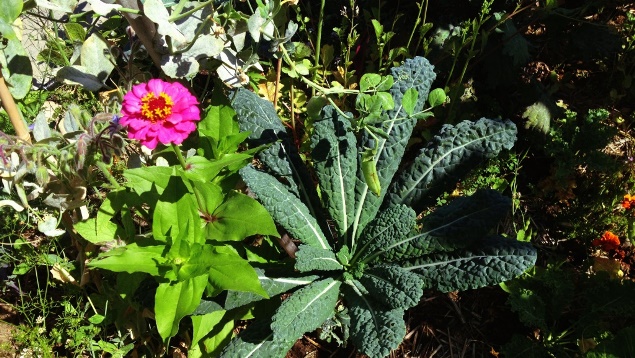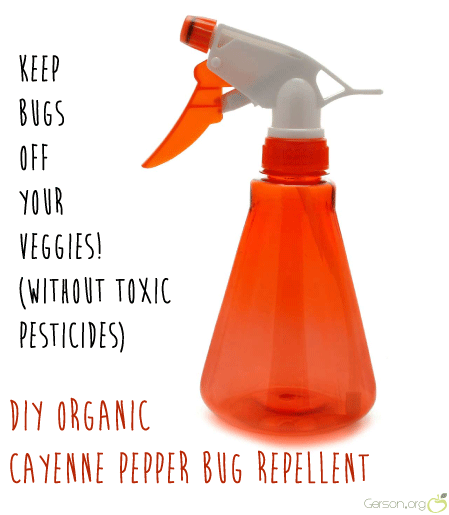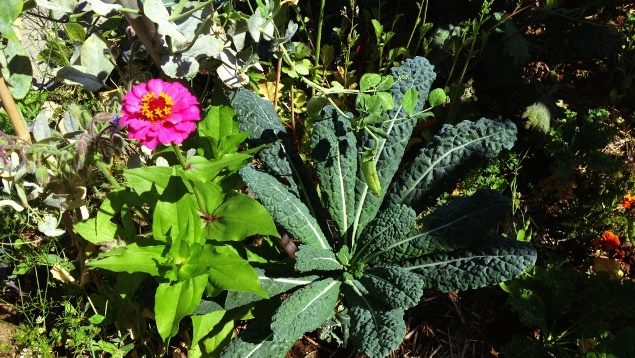
Springtime is full of beautiful blooms, new sprightly sprouts, and a fresh new set of in-season produce to brighten up our lives. We normally think that we need to visit the grocery store or florist to enjoy these beauties, but that’s not the only answer.
Growing a garden is much more enjoyable, personal and cost-effective. Gardening can offer a great economic benefit for patients on the Gerson Therapy as well. The brightness it can bring to anyone’s day, especially an ill patient, is certainly priceless.
Food scraps from leftover Gerson meals can be composted rather quickly and then applied to fresh, growing fledgling plants. Leftover juice pulp is another great source for the compost bin because it is still rich in many nutrients, even once pressed. Many of the foods used on the Gerson Therapy are selected because of their high nutrient content. Through composting, these high nutrient scraps help to build a healthy garden.
The first place I went when starting to learn about organic gardening was a splendid book by John Jeavons called How to Grow More Vegetables. The second chapter, starting on page 33, describes plants grown purposefully to draw up specific nutrients from deep in the soil, which are then composted and applied to the top soil to prevent depletion.
How to Grow More Vegetables also mentions methods of growing seeds according to the phases of the moon. During certain phases, there is more or less of a pull from the gravity of the moon and nighttime light, which affects the growth of the plants’ roots and leaves. When seedlings are started at certain times of the month, these phases can help them develop faster and with stronger root systems to support their new, tender sprouts.
Growing certain types of these tiny sprouts together can benefit both the plants and your garden as a whole. Some plants may benefit each other by growing together. Some plants, such as corn, with thicker root systems retain soil moisture for plants with less dense root growth, like beans. Other plants, like marigolds for example, act as repellents for insect demolishers of other flora, thus eliminating any need for even organic pesticides.
As a young child, Dr. Gerson helped his grandmother in her garden. He observed the migration of earthworms from a section of the soil chemically treated with pesticides to the side that was left untreated. Through careful experimentation, he realized that the living organisms in our soil despise the use of chemical pesticides, herbicides, or fertilizers, just like humans.
If these chemicals cause drastic changes in the behavior of a creature so integral to the growth and health of plant life in our gardens, what more of an effect will it cause in our bodies, to the other organisms in the soil, and even to the plants themselves?
Thankfully, there are ways to avoid natural pests that are much less toxic or irritating; one is hot pepper spray which can be made at home!
DIY Organic Cayenne Pepper Bug Repellent Spray

This is a great chemical-free way to keep unwanted bugs off your prized produce.
Ingredients:
- 1 garlic bulb
- 1 small onion
- 1 tsp powdered cayenne pepper
- 1 quart water
- 1 tbsp liquid castile soap (i.e., Dr. Bronner’s)
Directions:
Put garlic and onion in the blender, blend until liquefied. Then add 1 quart of water and 1 tsp of cayenne pepper. Cover the mixture, and let it steep for one hour.
Then, strain the mixture through a cheesecloth and add 1 tbsp castile soap. Put it all into a spray bottle, and spray the mixture on your plants to ward off bugs.
Keep the pepper spray refrigerated, and it will keep for about a week!
Let’s strive to help heal ourselves and our earth by growing a few delectable veggies or fruits this season. Happy gardening!
P.S. Check out our DIY Organic Gardening board on Pinterest for many more organic gardening tips, tricks and bits of inspiration! (You’re following the Gerson Institute on Pinterest, right?)
About the Author
 Kayla Courtney is one of the Education Specialists at the Gerson Institute. She works on the front lines answering the constant influx of emails and phone calls, assisting patients who visit the clinic in Mexico, and managing projects for volunteers.
Kayla Courtney is one of the Education Specialists at the Gerson Institute. She works on the front lines answering the constant influx of emails and phone calls, assisting patients who visit the clinic in Mexico, and managing projects for volunteers.
Kayla has a passion for dance of all styles and loves making and eating new and nutritious vegan recipes.
Do you grow your own organic produce? Please share your best gardening tips in the comments below!



Comments8
Ugh, I WISH I could use this! I’m allergic to garlic, onions and castille soap!! Is there any other recipes?
I use the herb Pennyroyal to keep rabbits, deer and other animals from out of my garden. They do not like it so they stay away. I just put it around the garden each time after a rain. It works inside the home too to keep out rodents. I works great and does not harm the animals.
I’d like to try this organic insect repellant for my garden. This way, I will be able to save more without buying those harmful solutions. http://www.protectmyyard.com/
Is the water supposed to be warm? or does steep just mean “let the juices hang out”. Because steeping is usually associated w/ warm water & tea, etc.
Hi, do you have any recipe to keep fungus away from vegetables?
This may be a silly question, but can this also be used in areas where pets frequent or will the cayenne irritate their skin & paws.
Love your article! Thanks for sharing. The tip on Cayenne pepper spray to keep those nasty bugs away I will try on my veggies…
Andrew Davies
Christchurch
http://OrganicGardeningAdvice.net
Works well for deer also!!!! Your pets will tend to avoid the area. Hasn’t hurt my pets yet at all!!!!
Comments are closed.